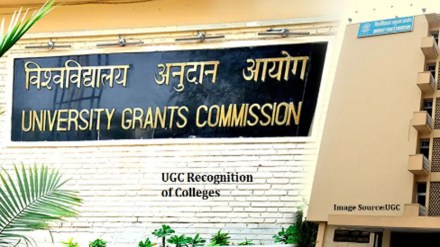In a significant move, the University Grants Commission (UGC) has imposed strict penalties on three universities that were found guilty of compromising the integrity of the PhD degree. These universities—OPJS University (Churu), Sunrise University (Alwar), and Singhania University (Jhunjhunu), all located in Rajasthan—have been barred from admitting new PhD students for the next five years. This decisive action by the UGC sends a clear message to all institutions regarding the importance of maintaining rigorous academic standards.
UGC’s Strong Stance on Maintaining Academic Standards
The UGC’s decision follows a thorough review by a standing committee, which determined that the institutions in question had failed to adhere to the prescribed PhD regulations. According to UGC Chairman M. Jagadesh Kumar, this action is part of an ongoing effort to ensure that the quality of doctoral programs in India remains robust and globally recognised. “Universities should be committed to maintaining the highest standards in PhD programmes. UGC will take appropriate action against institutions that fail to follow UGC’s PhD regulations,” Kumar said.
The UGC has not only issued a public notice regarding the matter but has also communicated its decision directly to the involved universities. In addition to the five-year ban on admissions, the UGC also emphasised that these institutions would face significant scrutiny in the future to ensure compliance with academic norms.
The Need for Transparency in PhD Programs
The UGC’s actions underscore the importance of transparency and adherence to academic norms in higher education. The commission has urged prospective students and their families to conduct due diligence when selecting universities for doctoral studies. The UGC has strongly recommended that students verify the recognition status of the university and its PhD programs before applying.
“Prospective students and parents are advised not to take admission in PhD programmes offered by these universities as their degrees shall not be treated as recognized or valid for the purpose of higher education and employment,” said UGC Secretary Manish Joshi. This warning serves as a cautionary measure for those considering doctoral programs at institutions with questionable academic practices.
Addressing the Broader Issue of PhD Regulation Compliance
UGC’s action against OPJS University, Sunrise University, and Singhania University is not an isolated incident. The commission has made it clear that it will continue to monitor the quality of PhD programs at other universities and take appropriate actions if violations of PhD regulations are found. This includes ensuring that institutions follow strict guidelines regarding the award of PhD degrees and the academic norms set by the UGC.
The UGC is particularly focused on upholding the integrity of the PhD qualification, which is seen as a mark of scholarly achievement and research excellence. By taking action against universities that fail to comply with its regulations, the UGC is working to safeguard the credibility and reputation of Indian higher education on the global stage.
Ensuring a Bright Future for Higher Education
The recent move by the UGC highlights the growing focus on quality control within India’s higher education system. As the landscape of education continues to evolve, it is essential for universities to uphold the values of research excellence and academic rigour. By holding universities accountable, the UGC aims to protect the interests of students, enhance the global stature of Indian universities, and ensure that the PhD degree remains a symbol of genuine academic achievement.
The UGC’s decisive actions also serve as a reminder to all institutions of the importance of maintaining high standards, especially in research-based programs such as the Ph.D. degree. The focus on quality assurance is vital for shaping the future of India’s higher education system and ensuring that it meets the expectations of students, faculty, and the broader academic community.
